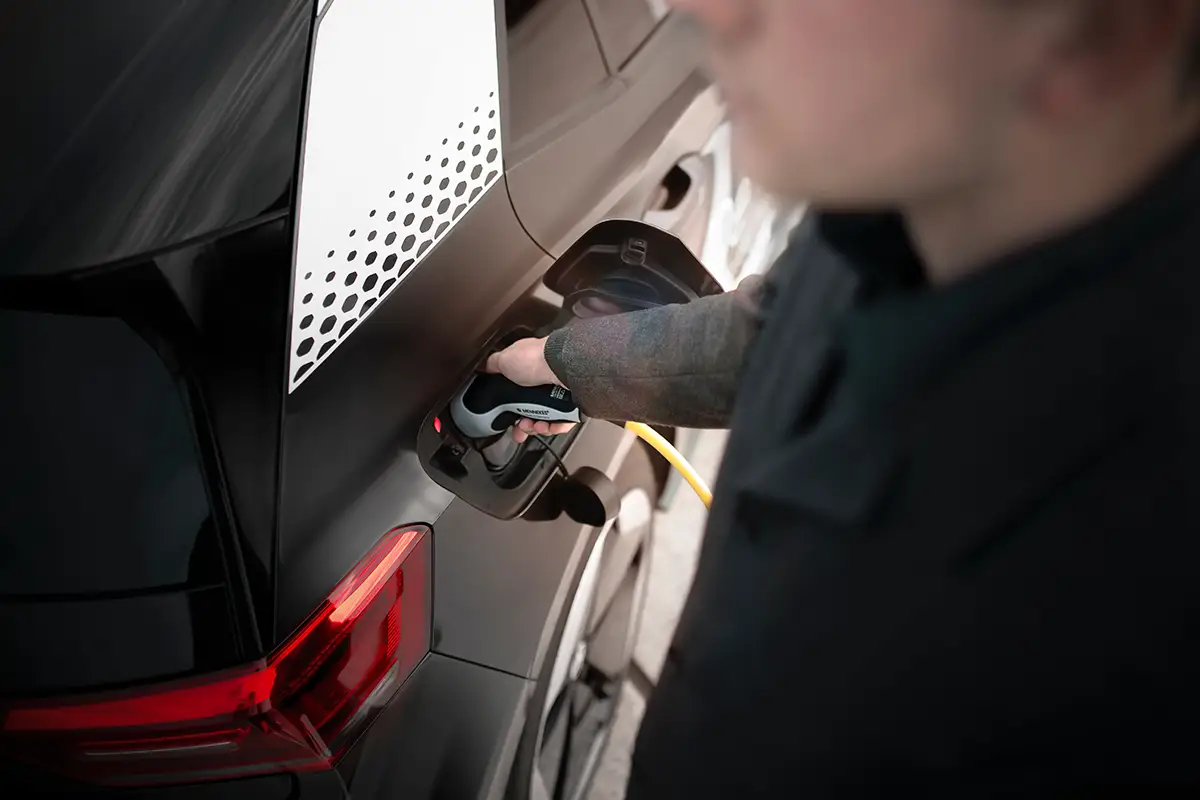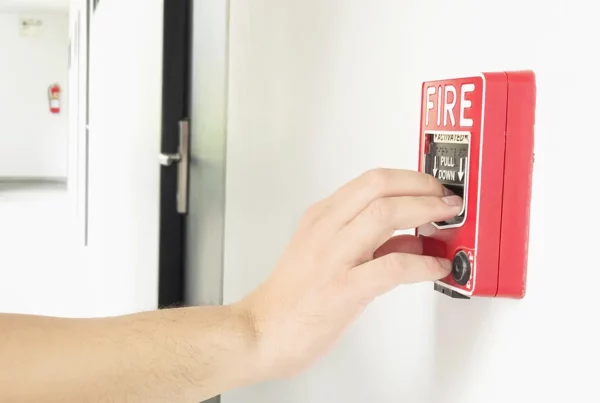
The faster you drive, the sooner your car will need to stop for refueling. That is why electric cars are often considered more convenient than gas-powered vehicles. But how long can an EV go before it needs a charge? How do you know when they’re running low on power? What can you do about that? The following FAQs answer these questions and many others on EV charging.
How Far Can My Car Go on a Full Charge?
It depends on the EV charging system and its battery. Lithium-ion batteries typically last as long as 1 million miles, creating an estimated driving range of up to 200 miles per charge. Because EVs are more efficient than gas-powered cars, you can sometimes go further on a single charge. For example, a Nissan Leaf can go up to 107 miles on a full charge, while the Tesla Model S only needs around 80 percent of its battery capacity for a range of 300 miles.
How Long Does It Take To Charge an EV Fully?
The time needed depends on how empty the car’s battery is and the type of charger used. If you plug your car in at home, you can expect it to fully recharge overnight (about 8 hours) with an ordinary 120-volt outlet, which only supplies 1-2 kilowatts of power. However, EV charging using that same outlet would only give your car around 10 miles of range per hour.
Drivers who need faster charging times can opt for a 240-volt outlet with a higher rate of 32 amps, which supplies 3.7 kilowatts of power and fully recharges the car in around four hours. A faster charger can also charge an EV to 80% capacity in about an hour, but it costs around $2,000 to install one at your home.
What Can I Do if My Car Runs Out of Power?
If you think your battery might be empty, plug in the car at any available outlet. Suppose it’s not possible to charge the vehicle where you are. In that case, some EVs offer an “E-Brake Override” system that uses electric brakes instead of hydraulic brakes by replacing a few components with electronic sensors.
This enables you to increase or maintain speed for up to 16 miles on downhill roads (at 20 percent grade) or 6.2 miles on level roads. Owners of EVs like the Nissan Leaf can also get towed up to 37 miles with no fuel cost using the “Nissan CarWings” service through local dealerships.
Will I Need to Upgrade My Power Grid if Everyone Starts Driving EVs?
Electricity demand increases by about 1 percent every year. That means the grid is flexible enough to handle new electricity-using appliances like cars without any significant changes or upgrades necessary for now.
A 2008 study conducted by NASA’s Glenn Research Center concluded that an increase of 80 million plug-in vehicles in the United States would create a 0.5% incremental peak demand. Keep in mind, though, those electric companies are aware of this issue and plan accordingly for future needs.
What is an EV Charging Station?
An EV charging station is a place where you can recharge an EV’s battery. EV Charging stations come in various shapes and sizes depending on the type of power they supply – for example, some are similar to gas pumps. In contrast, others resemble parking meters or newspaper racks.
Public stations that offer quick-charging speeds typically take less than half an hour to charge your car fully. Homeowners who want faster EV charging rates can get 240-volt chargers installed at their houses by electricians, which will cut down recharging times significantly.
Some companies even offer wireless induction stations that do not require any cables. These allow drivers to park over them and boost their batteries with no physical connection needed.
What is a DC Fast-Charger?
DC fast chargers are public quick-charging stations that can recharge an EV to 80 percent of its capacity in around 30 minutes, which is roughly equivalent to the amount of time it takes to fill up a car with gas. These EV charging stations use direct current (DC) instead of alternating current (AC), which means they are better suited for electric cars than AC chargers because their power needs are different. By 2021, California will have 1,500 DC fast chargers installed at 450 locations.
A few automakers even offer track day cars equipped with 100 kilowatts regenerative braking systems that can fully charge five minutes or less. However, these vehicles come with a price tag that ranges from $350,000 to over a million dollars.
What is a Level 2 EV Charging Station?
A level two charger requires at least four hours of charging time, and you can install it indoors or outdoors. Once you invest in one of these chargers, it will compensate for power lost during longer commutes.
When sealed properly, they are safe from the elements and easy to maintain. For better results, check out smart chargers explicitly designed for the grid where your house resides. They have features like load-management timers that help homeowners save money by using electricity when demand is low on the grid – meaning more savings for you!
How do I Know Which Electric Vehicle Charging Station is Right for Me?
There are several significant factors to consider when choosing a charging station. Location, portability, power level, and the amount of time needed to recharge your battery will all affect your decision. For instance, homeowners who only travel short distances would benefit from a Level 2 charger plugged into a standard NEMA 10-50 outlet.
Alternatively, those who require more power could opt for an HPC-40 or J1772 combo unit with a faster charge rate. All in all, finding a suitable charger usually boils down to three things: price range, personal preference, and location of installation. Considering these variables ahead of time will help you better visualize your options and make your choice less complicated.
I Want to Install a EV Charging Station at My Home. How Do I Know if it is Safe?
Charging stations that plug into standard outlets are safe because they operate on the same voltage as your standard household appliances, such as lamps and air conditioners. However, homeowners must take some precautions when installing higher-powered DC chargers – especially level three fast chargers – to prevent electric shock or fire hazards while connected to their houses.
To ensure you don’t run into any safety issues with your newly installed charging station, consult with an electrician and follow all local and national codes.
What is a J1772 Cable?
It’s the standard connector used by electric cars for plug-in charging stations. They made these connectors to withstand heavy use and provide an easy way to recharge your battery without cluttering up your garage with cords from multiple sources.
You can also find the J1772 on public EV charging stations, which means you won’t need to remember where you left your charger when you go out for work or play. You pull into the station, plugin, and go!
How Do I Know When My Car Battery is Fully Charged?
When you’re ready to plug in your vehicle, all you need to do is look for the illuminated port on the EV charging station. Once your car starts charging, an LED light will appear green. When your battery is fully charged, this light will turn off, and the port will go dark.
What Is An Example of a Public EV Charging Station?
To see all the public options in your area, visit Charge Point Network. The company provides an interactive map that shows you nearby public stations and those installed at commercial properties like restaurants or retail stores. You can also find them at hotels and parking garages throughout significant cities around the US, so you’ll never be too far from a place to the plug-in!
Do I Have to Use an Electrician to Install My Charge Point Unit?
You can install a charge point unit on your own, but the best way to do it safely is with the help of a professional. Professionals can make sure you mount it in an area that offers proper ventilation and stays dry, for instance. They’ll also be able to inspect all power connections and adhere to local regulations concerning electric installations.
To ensure you don’t run into any safety issues with your newly installed EV charging station, consult with an electrician and follow all local and national codes! If you need help finding qualified professionals in your area, look for companies like Nextgen Electric. The company has qualified electricians who will help sort out any installation issues that you may need.









